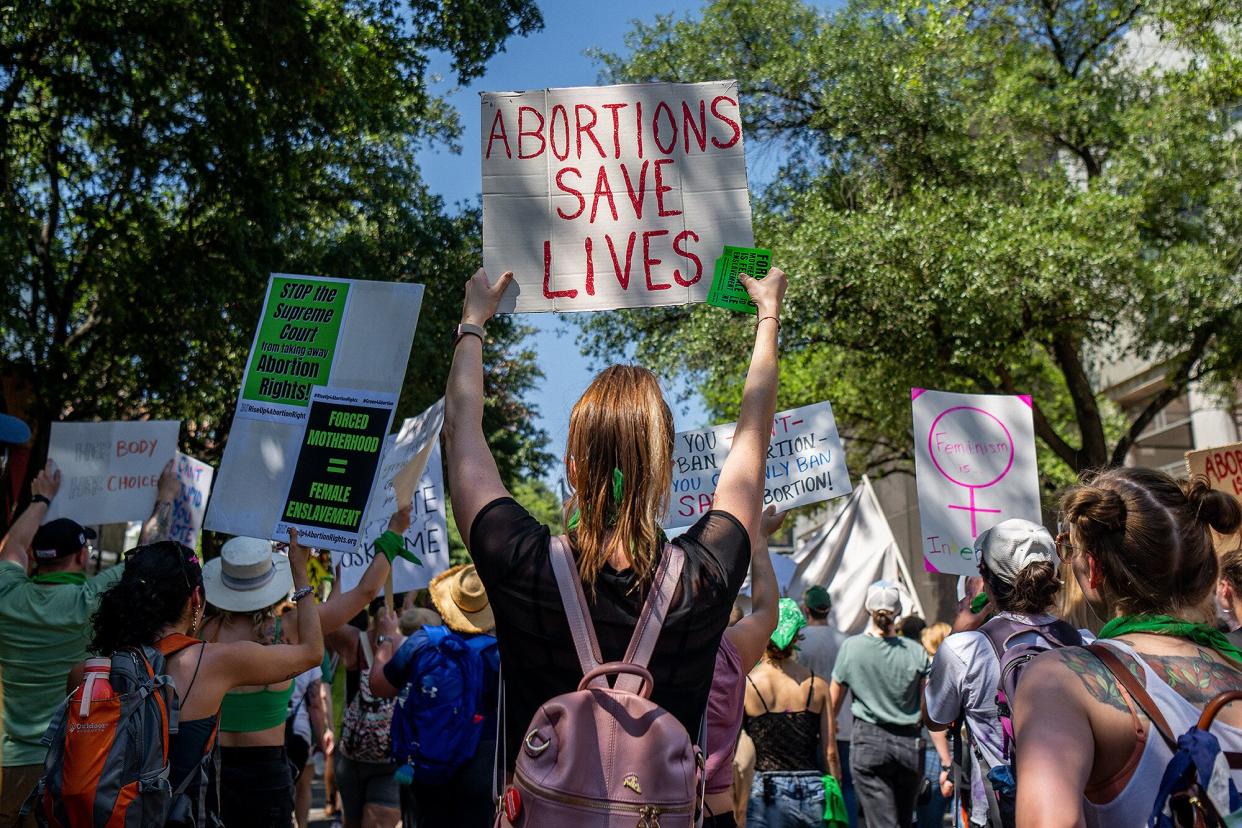Americans Look to Mexico for Abortion Services After Roe v. Wade Is Overturned

Brandon Bell/Getty
American women are crossing the border into Mexico for reproductive healthcare services following the Supreme Court's decision to overturn 1973's Roe v. Wade and end the right to abortion.
Verónica Cruz is the founder of Las Libres, a feminist organization dedicated to defending women's rights and helping women access abortions. She told CNN thats she's received numerous frantic calls from women throughout the United States after abortion clinics canceled their appointments.
"As soon as the Supreme Court decision came out, they were left without service. There are many people who call us crying, very desperate," Cruz told the outlet. "And the majority don't even speak Spanish."
"It surprised me that Mexico is going forward, and the United States is going backward," she added, noting that abortion was only decriminalized in Mexico in September 2021. "I never imagined that."
Never miss a story — sign up for PEOPLE's free daily newsletter to stay up-to-date on the best of what PEOPLE has to offer, from juicy celebrity news to compelling human interest stories.
Cruz said her organization and others help Mexican women obtain pills for medication abortions and they have seen an influx in requests from American women since the end of Roe. She told the New York Times that she and other activists are planning to help bring Americans to Mexico and create networks to send abortion pills across the border by mail.
"We aren't afraid," said Cruz. "We are willing to face criminalization, because women's lives matter more than their law."
Luisa Garcia, director of Profem, one of Mexico's largest abortion providers, said Americans make up about 25% of all patients at their Tijuana clinic and in recent months, numbers have skyrocketed as more American women call in, specifically in Texas and Arizona where "trigger" laws on abortion have been enacted.
"We are expanding abortion services here in Mexico," Garcia told KPBS. "It feels strange that in the United States, they are reducing them."
RELATED VIDEO: House of Representatives Passes Bills to Protect Access to Abortion After Roe v. Wade Is Overturned
RELATED: President Biden Calls on Congress to End Filibuster and Codify Roe v. Wade Into Law
Last week, the House of Representatives passed two bills that would protect nationwide access to reproductive healthcare, including abortion, in response to the overturn of Roe.
One bill, the Ensuring Women's Right to Reproductive Freedom Act — which passed 223-205 — would protect a patient's right to travel across state lines for abortion services. Another bill, the Women's Health Protection Act — which passed 219-210 — would allow healthcare workers the right to provide abortion services and patients the right to obtain them, regardless of several state bans.
Though both pieces of legislation were passed by the Democrat-led House, the bills are unlikely to pass the Republican-led Senate.
Earlier this month, President Joe Biden also signed an executive order vowing to "ensure the safety of patients, providers, and third parties" who have abortions or provide abortion services.
The order called on the U.S. Department of Health and Human Services (HHS) to submit a report in 30 days detailing steps to take that can protect medication abortion, expand access to emergency contraceptives, and increase education about reproductive healthcare services.

